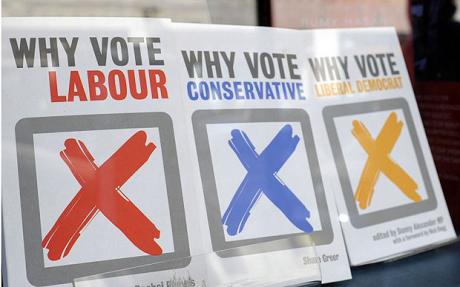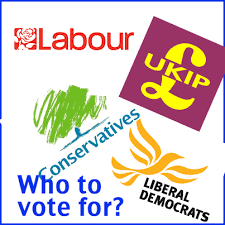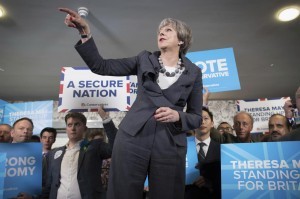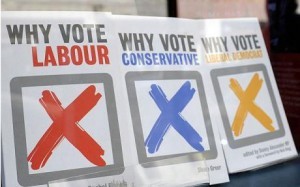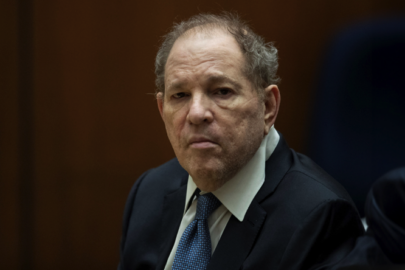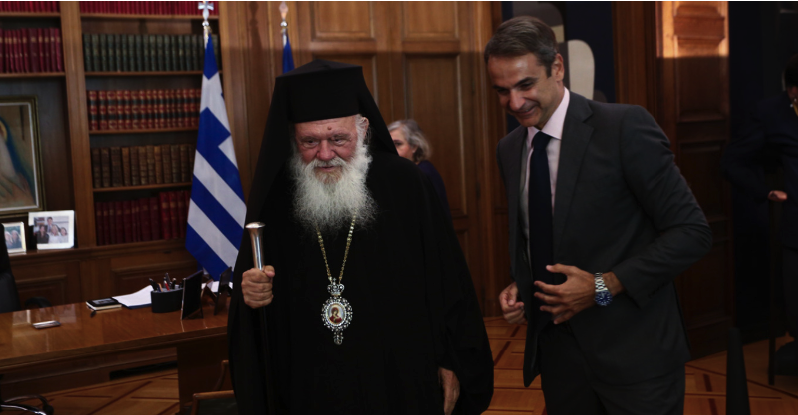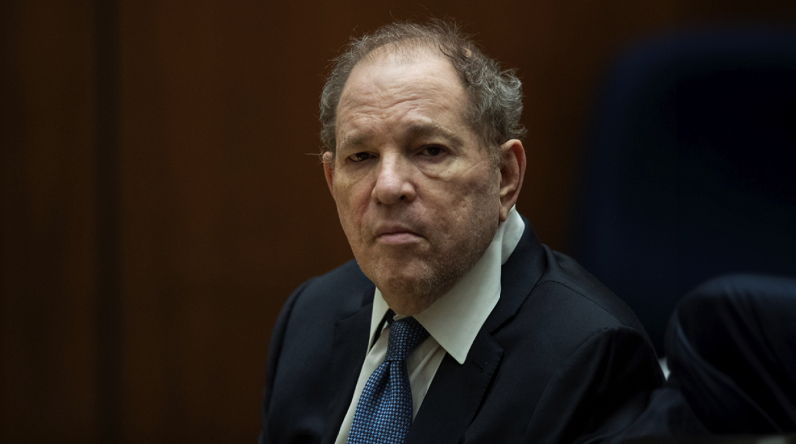Britain goes to the polls Thursday in a contest which has narrowed in recent weeks. Theresa May’s Conservatives are still favorites to win the June 8 race outright, but Jeremy Corbyn hopes to have done enough to deprive May of an overall majority and remain leader of the Labour Party.
Voters will also deliver their verdict on the Liberal Democrats’ offer of a second EU referendum on the final terms of the Brexit deal. The United Kingdom Independence Party will find out if their collapse in recent local elections translates into a national collapse, while the Scottish National Party — which very nearly won a clean sweep of Scottish seats in 2015 — will discover if it has lost some of its shine north of the border.
How it works
General elections in the U.K. use a “winner takes all” system. Under the first-past-the-post electoral system, MPs each represent one of 650 constituencies which gives them a seat in the House of Commons. To become prime minister and form a government your party needs to win more than half the seats in the House of Commons — the magic number is 326. If all parties fall short, Britain has a hung parliament and deals must be done to form a government. May inherited a Commons majority of 12.
The scenarios
A brilliant night: There was talk of a 100-plus majority at the beginning of the campaign. This looks an unlikely scenario now. But in the event May reaches the ton, the history books start being written and she looks invincible. With expectations lowered by recent polls, even 80 seats will be judged a fantastic night for May. Corbyn has to go (under normal circumstances).
It was worth it: 50 or more seats and May’s gamble has paid off. She has a substantial majority and a raft of new MPs in marginal seats who owe her their success. It remains a terrible night for Labour. European leaders — closely watching the U.K. election — see a strengthened prime minister with a decent mandate just days before Brexit negotiations start.
Why did we go through all of this: If seat numbers are around the 30 mark or lower May ends the campaign considerably weaker. Opponents and loyalists within the party will question why the party has been through a costly and distracting campaign. The shine has well and truly rubbed off their once seemingly invincible leader. The bunker mentality in the May camp will have to change and she will have to work hard on party management.
Disaster for May: A similar or smaller majority than her current one will strengthen the pro-Remain and hard-Leave wings of her party. A hung parliament spells disaster for May. If she, or a mixture of other parties, cannot form a government, Britain could be heading for a second election in 2017. Only one polling firm is predicting it, but in the event they were all wrong and Corbyn wins a majority, Rosa Prince has an account of what comes next.
Election day
Voting begins at 7 a.m. and the last ballots must be cast by 10 p.m. local time. British news will be fairly election free during the day with reporting restrictions preventing coverage that indicates how the vote is going while the polls are open, meaning journalists are restricted from reporting much more than politicians going to cast their votes and that voters are going to the polls.
11 a.m.
We will be live blogging from 11 a.m. local time (noon Brussels time) and will have live results on the night.
10 p.m.
An early indication of the election result will come in an exit poll, commissioned jointly by the BBC, ITV and Sky News. It is conducted by Ipsos MORI and GfK. This will be released at 10 p.m. and will likely prompt a flurry of trades around the world. In 2015 it correctly predicted David Cameron’s Conservatives had won an outright majority and in 2010 suggested a hung parliament.
11 p.m.
All eyes will be on the North-East for the first hour after the polls close. It is matter of pride for the people of Sunderland to be first in with their results and a slick ballot box transportation and vote counting operation will likely see Houghton and Sunderland South the first to report back, according to Press Association estimates.
1 a.m.
A clearer picture of the result will start to emerge when the first bellwether seats are announced. Nuneaton — the textbook example of a marginal seat — is regarded as a clear indicator. In 2015 David Cameron pinpointed this result as the moment he knew he had won. Welsh results are also likely to start filtering in early, according to the BBC. Wrexham could be an early Tory gain if it is a good night for May. Labour will tot up early results, but election watchers should not be deceived. Their urban strongholds will be among the first to report back. Logistics mean rural areas where Tories have more support are likely to be much later in declaring results.
2 a.m.
This is when things really start to get frantic as seats start to come in thick and fast. Giving his hints about what we can learn from marginals due in by about 2 a.m, pre-eminent polling expert John Curtice, professor of politics at Strathclyde University, said: “If the Tories win Tooting or Wrexham they will certainly be heading for a notably larger majority, if they win Darlington we will probably be heading for a landslide. If the Tories lose Thurrock and Bury North then their majority could be vulnerable.”
2:30 a.m.
Labour leader Jeremy Corbyn’s Islington North seat in London, Britain’s smallest constituency geographically, is due to be declared reasonably early in the night. There will be plenty of film crews at his count hoping for his reaction to events as the night unfolds.
3 a.m.
This will be one of the busiest moments of the night for results. Liberal Democrat leader Tim Farron will find out his fate in Westmorland & Lonsdale. In Scotland, Nicola Sturgeon’s Glasgow South seat is set to be announced. We will likely find out if the Conservatives have managed to make inroads into once barren territory for them in Scotland. Both Moray — the seat of SNP leader in Westminster Angus Robertson — and Perth & Perthshire North, are due to declare. They are long shots for the Conservatives, but areas where they did well in recent local council elections.
3:30 p.m.
A symbol of quite how stark Britain’s realignment has been is likely to come at about 3:30 p.m, when the seat that used to belong to former Labour Prime Minister Tony Blair, Sedgefield, is expected to report back. The only seat UKIP won at the last election — Clacton — is also likely to be announced around at a similar time, and this is also somewhere Tories are hoping will turn blue.
4 a.m.
This is likely to be a big moment for the Liberal Democrats. They will find out if they have consolidated their comeback in Richmond Park — the seat where Tory Zac Goldsmith was defeated by Sarah Olney when he triggered a by-election by resigning over Heathrow Airport expansion and then standing again. In nearby Twickenham, former party leader Vince Cable is likely to find out his fate — a result he has set as a measure for his party’s resurgence.
Tory campaign insiders suggest the Midlands will be the place to watch after the surprise mayoral win for Tory Andy Street in elections last month. From about 4 a.m. the results will come thick and fast with Birmingham Edgbaston, Birmingham Erdington, Dudley North and Newcastle-Under-Lyme all ones to watch.
4:30 a.m.
Theresa May’s Maidenhead seat is due to declare and the world’s media will be waiting to hear her speak at her count, whichever way the night is going.
5 a.m.
UKIP leader Paul Nuttall will find out if he has won a seat in the House of Commons when the Boston and Skegness results are due back. Another big moment for the Conservatives will come in Scotland when the key target of Berwickshire, Roxburgh & Selkirk declares.
Winner announced
The last results may not come in until breakfast time, but there could be a clear winner before the results are all in. Traditionally the winner waits for the loser to concede defeat before delivering a victory speech.
The next day
Victory speeches: If there is an outright winner we will likely have a victory speech by breakfast time. Questions about the future of the leaders of the defeated parties are likely to start to surface pretty quickly. In 2015, Ed Miliband and Nick Clegg — the leaders of Labour and the Liberal Democrats respectively — had resigned by the end of the day after the election. Many of Corbyn’s Labour MPs, who oppose their leader, stated that if the Labour leader has not narrowed the 7 percentage point gap between the Tories and Labour from the last general election, he will face calls to go.
The Queen: The outgoing prime minister (if there is one) will resign and the monarch, by long-standing convention, invites the person most likely to command the confidence of the House of Commons to become prime minister and form a government. In the event of a hung parliament she does not get involved and waits for political parties to determine who is best placed before extending an invitation to form a government.
A hung parliament: If no party wins an outright majority, party leaders will begin a battle to form a government. If 2010 is anything to go by, the leaders will start making statements about their positioning early. In a situation of no overall control the government in power before the general election gets the first chance at creating a new government. If they cannot do so, the prime minister will resign.
politico.eu

